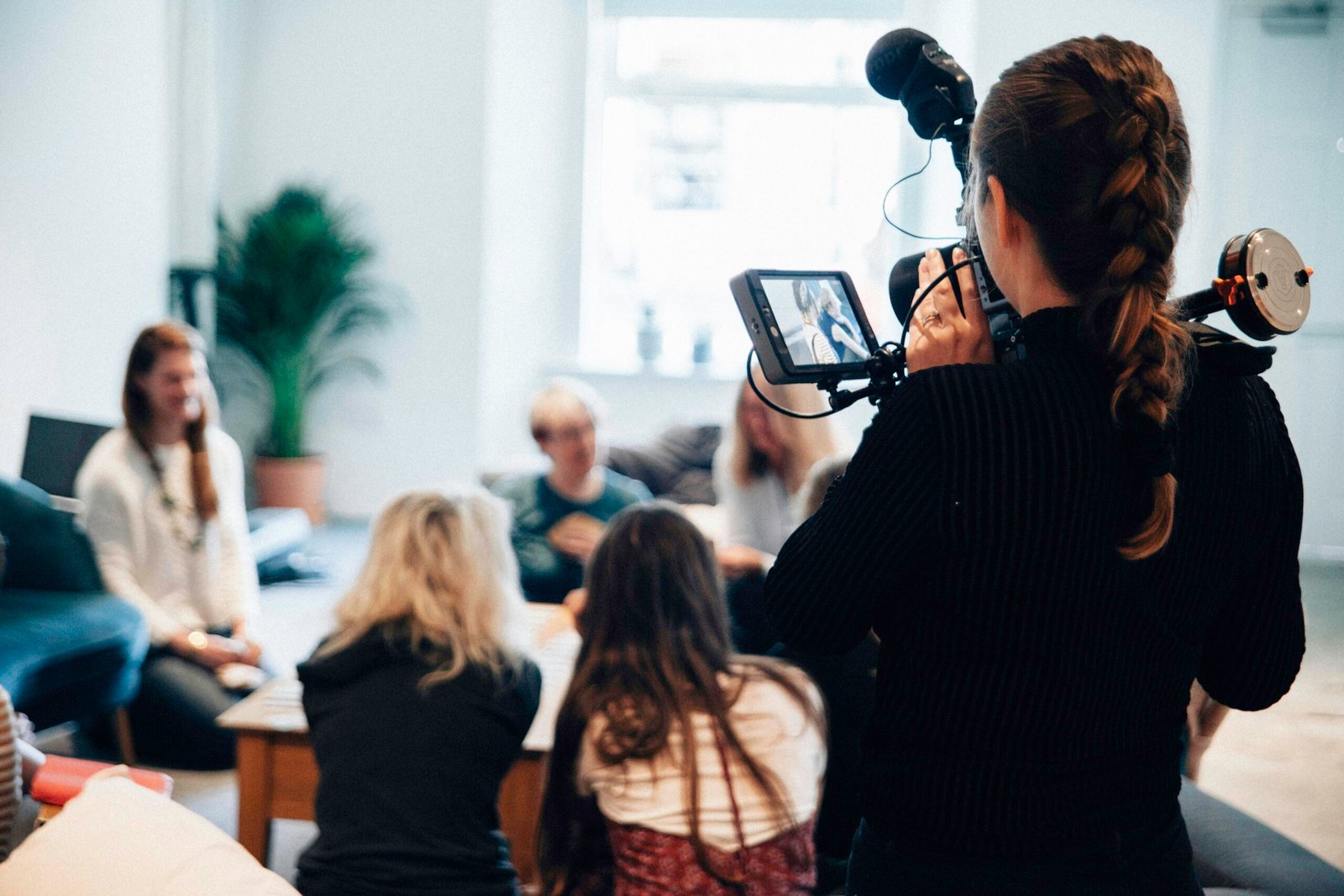Dive into the essentials with “Top 10 interview questions and answers,” your ultimate guide to ace your upcoming job interview. This comprehensive article offers insights into the most commonly asked questions by interviewers, such as “What can you tell me about yourself?” and “Why should we hire you?” You’ll discover valuable strategies for answering challenging questions, tips on showcasing your strengths, and ways to align your answers with what employers are looking for. Whether you’re preparing for a phone, Skype, or in-person interview, this guide equips you with the knowledge to confidently present yourself as the ideal candidate for the job. Have you ever walked into an interview room, nervously anticipating what questions might come your way? An interview can indeed be a nerve-wracking experience, but it doesn’t have to be. With some preparation, you can walk in with confidence and make a great impression. In this article, we’ll cover the top 10 interview questions and answers to help you get the job you want. Let’s dive in!
Top 10 Interview Questions and Answers
Understanding the common interview questions and how to answer them can set you apart from other candidates. Research shows that many job candidates will be expected to answer a high percentage of these questions during an interview.
1. What Do You Like Most and Least About Your Current Job?
What the Interviewer is Looking For
The interviewer wants to assess your compatibility with the new job opportunity. By understanding what you like and dislike about your current job, they can gauge if you’d be satisfied with the role they’re offering.
How to Answer
When highlighting what you like, choose an aspect that relates directly to the job you’re interviewing for. When discussing what you dislike, avoid mentioning duties or tasks that are part of the new job. Be professional and avoid personal attacks on colleagues or your current organization.
Sample Answer
“I enjoy the collaborative nature of my current job and the opportunity to work on diverse projects that challenge my skills. However, I feel that my growth opportunities have become limited, and I am looking for a role that offers more room for advancement.”
2. What Motivates You in Your Job?
What the Interviewer is Looking For
This is a personal question and will depend on your unique experiences and competencies. The interviewer wants to know how you find motivation and whether it aligns with the job and organizational environment.
How to Answer
Understand the job requirements and emphasize the fit between what motivates you and what the job offers. Explain how the job environment can provide the satisfaction and motivation you seek.
Sample Answer
“I am motivated by the opportunity to solve complex problems and see the tangible results of my efforts. The collaborative environment and innovative projects mentioned in the job description greatly appeal to me.”

3. How Do You Deal with Conflict?
What the Interviewer is Looking For
Conflict is inevitable in any job. The interviewer wants to know your approach to managing conflict and how you prevent it from escalating.
How to Answer
Discuss the resources you use to manage conflict, your strategies for prevention, and how you ensure conflicts don’t happen again.
Sample Answer
“I handle conflict by addressing it directly and calmly. I ensure that all parties have a chance to voice their perspectives and work together to find a mutually beneficial resolution. By maintaining open communication, I can often prevent conflicts from escalating.”
4. How Do You Define Success in Your Job?
What the Interviewer is Looking For
Success means different things to different people. The interviewer wants to know your interpretation of success and whether it aligns with the organization’s values and goals.
How to Answer
Explain what you consider a challenge, your career goals, and what you deem important in achieving success.
Sample Answer
“To me, success in my job means achieving the goals set for me, continuously improving my skills, and making a positive impact on my team and the company. Success also includes personal growth and contributing to the company’s mission.”

5. How Would Your Manager and Co-Workers Describe You?
What the Interviewer is Looking For
This question assesses your self-awareness and how you are perceived in the workplace. It’s about understanding your strengths and weaknesses from others’ perspectives.
How to Answer
Focus on work-related characteristics rather than personal traits. Be honest but positive in your description.
Sample Answer
“My manager and colleagues would describe me as dependable, hardworking, and a team player. They often highlight my strong problem-solving abilities and my willingness to help others.”
6. What Do You Consider to be the Key Skills for This Job?
What the Interviewer is Looking For
The interviewer wants to see if you understand the job requirements and whether you possess the necessary skills.
How to Answer
Show your knowledge of the job by listing key skills required and highlighting those that are crucial for performance and outcomes.
Sample Answer
“The key skills for this job include strong analytical abilities, effective communication, and a solid understanding of the industry trends. I believe my experience with data analysis and my ability to communicate complex information clearly will be beneficial in this role.”

7. What Salary Are You Looking For?
What the Interviewer is Looking For
This is a tricky question. The interviewer wants to know if your salary expectations align with what they can offer.
How to Answer
Do your research on typical salary ranges for this type of job. Base your answer on market data and your salary history if applicable.
Sample Answer
“Based on my research and experience, I am looking for a salary in the range of $60,000 to $70,000. However, I am open to discussing this in more detail based on the overall benefits package and career growth opportunities.”
8. What is Your Reason for Leaving Your Current Job?
What the Interviewer is Looking For
The interviewer wants to understand your motivations for seeking a new position and to ensure you’re not leaving due to negative circumstances.
How to Answer
Focus on the positive aspects of what you are moving towards rather than criticizing your current employer. Avoid negative and critical answers.
Sample Answer
“I am looking for a new challenge and the opportunity to grow professionally. While I have enjoyed my time at my current job, I believe that this new role will offer me the chance to expand my skills and take on more advanced responsibilities.”
9. Describe Your Ideal Job
What the Interviewer is Looking For
Your ideal job should align with the job you’re interviewing for. The interviewer wants to see if the role matches your career ambitions and interests.
How to Answer
Keep it general but positive, focusing on attributes such as opportunities for growth, skills utilization, and contributions to the organization.
Sample Answer
“My ideal job would be one where I can continuously learn and grow, utilize my skills to their fullest potential, and make a meaningful contribution to the organization. I am looking for a dynamic and supportive environment that encourages innovation and professional development.”
10. What Has Been Your Greatest Achievement to Date?
What the Interviewer is Looking For
The interviewer wants to know what you have accomplished and how it relates to the job you’re applying for.
How to Answer
Focus on a relevant achievement that required hard work and presented a challenge. Highlight the goals you set for yourself, how you overcame obstacles, and the results of your efforts.
Sample Answer
“My greatest achievement to date was leading a project that increased our team’s efficiency by 20%. I identified process bottlenecks, developed a new workflow, and successfully implemented the changes. The project required extensive collaboration and problem-solving, and it was rewarding to see the positive impact on our productivity.”
Additional Tips for Interview Preparation
While these top 10 questions are common, interviewers may throw in a few curveballs to see how you handle unexpected situations. Here are some tips to help you prepare:
Research the Company
Before your interview, take the time to learn about the company’s history, mission, values, and products or services. Understanding the company will help you tailor your answers to align with their goals and show that you’re genuinely interested.
Practice Your Answers
Practice makes perfect. Rehearse your answers to common questions, but also be prepared to think on your feet. Practicing with a friend or family member can provide valuable feedback.
Prepare Questions to Ask the Interviewer
Having thoughtful questions prepared shows your interest in the role and the company. Ask about the team you’ll be working with, growth opportunities, or the company’s future plans.
Questions to Ask About the Job
- What does a typical day look like for someone in this position?
- What are the key challenges someone in this role might face?
Questions to Ask About the Company
- Can you tell me more about the company culture?
- What are the company’s goals for the next five years?
Questions to Ask About Management
- How does the team typically communicate?
- What is your management style?
Dress for Success
First impressions are crucial. Choose professional attire that aligns with the company’s dress code. When in doubt, it’s better to be slightly overdressed than underdressed.
Be Punctual
Arrive at the interview location at least 10-15 minutes early. This shows punctuality and gives you a few moments to collect your thoughts.
Follow Up
Always send a thank-you note or email after your interview. Express your appreciation for the opportunity and reiterate why you’re excited about the role.
Conclusion
Preparing answers to these top 10 interview questions and following our additional tips can significantly boost your confidence and performance in an interview. Always remember, the goal is to present yourself as the best candidate for the job by showcasing your skills, experiences, and enthusiasm for the role. Good luck!













